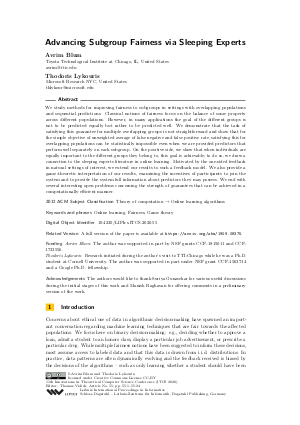LIPIcs.ITCS.2020.55.pdf
- Filesize: 0.55 MB
- 24 pages

 Creative Commons Attribution 3.0 Unported license
Creative Commons Attribution 3.0 Unported license




























Feedback for Dagstuhl Publishing